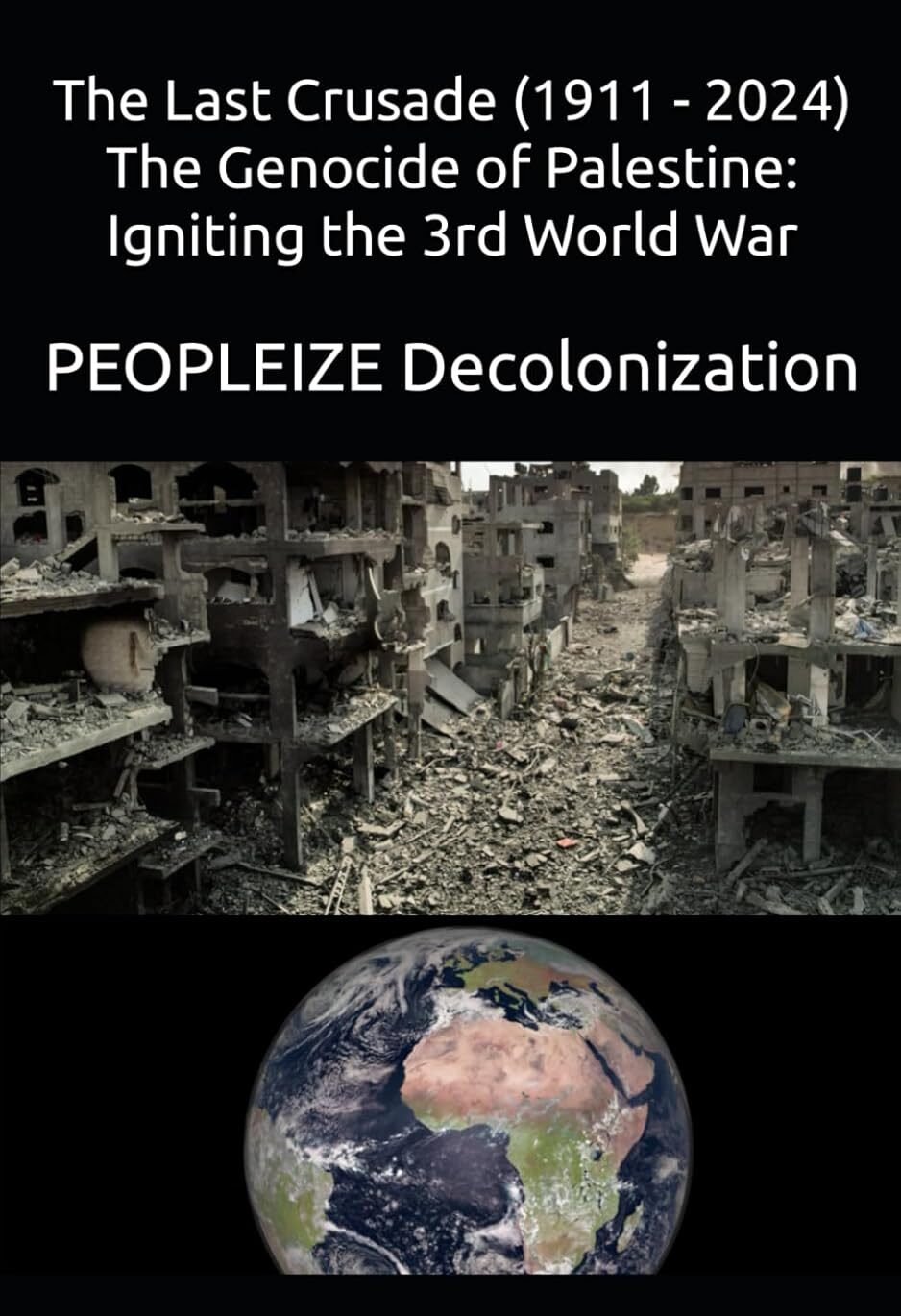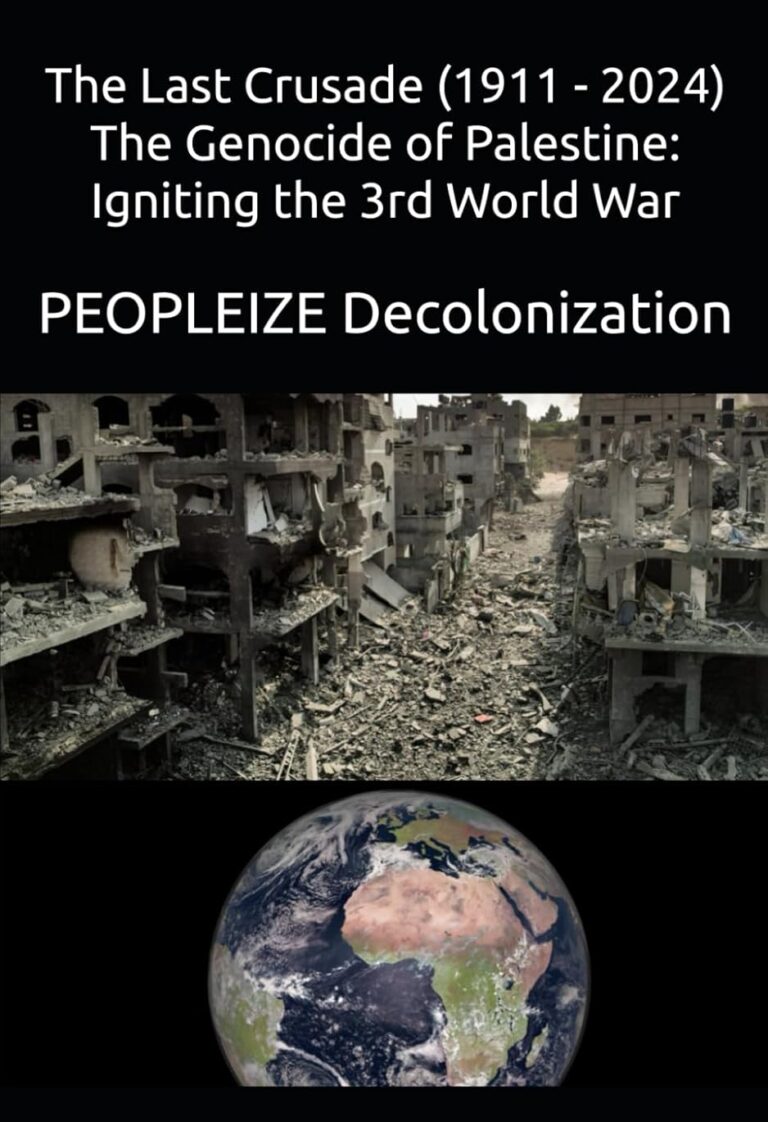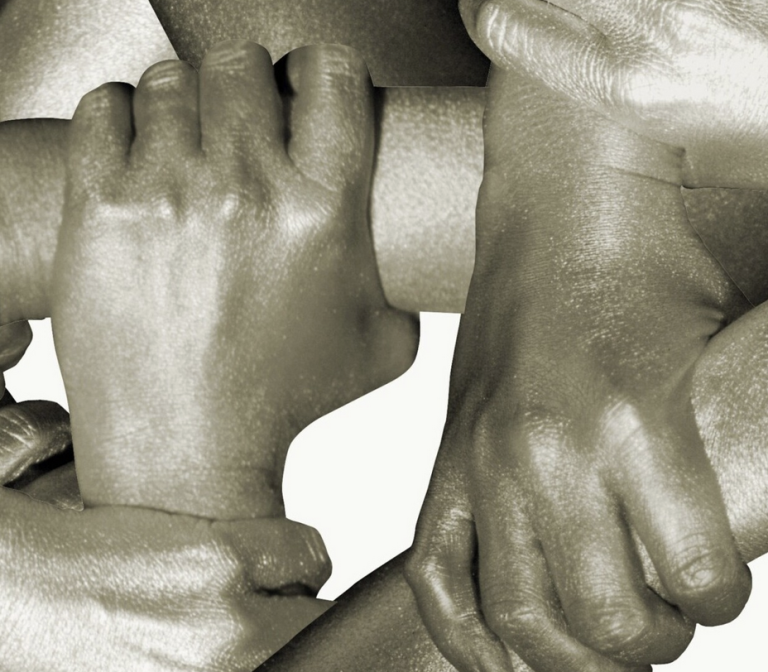Chapter I
The Historical Prelude to the Last Crusade (1911 – 2024) creating the Genocide of Palestine
The Crusades: A Detailed Overview
The term “crusade” refers to the military campaigns that were sanctioned by the Roman Catholic Church and the broader Christian world, particularly during the medieval period. These campaigns, which spanned from the 11th to the 13th centuries, were fueled by a complex mix of religious fervor, political ambition, and economic greed. The most infamous of these were the Crusades to the Holy Land, where Christian forces sought to wrest control of Jerusalem and other sacred sites from Muslim rulers. These wars were more than just religious conflicts; they were also expressions of the deep-seated violence and imperialistic ambitions that would come to define much of European history.
Introduction to the Crusades
The Crusades were a series of religious wars sanctioned by the Latin Church, primarily between the 11th and 13th centuries. They began as a response to the growing power of Muslim empires in the Middle East and were framed as holy missions to reclaim Jerusalem and the surrounding Holy Land for Christianity. However, the true motivations behind these campaigns were far more complex. The Crusades were driven not only by religious zeal but also by the desire for political power, territorial expansion, and economic gain.
Europe: A History of Violence and Power
Europe’s involvement in the Crusades was rooted in a culture of violence, conquest, and greed that had long been a hallmark of its history. From the rise of the Roman Empire to the feudal kingdoms of the medieval period, Europe was built on the idea that power could only be maintained through force and that wealth was a reward for the strong. This ethos of domination was not limited to external enemies; it also shaped the internal politics of Europe, where kingdoms and principalities were constantly at war, vying for control over land, resources, and people.
The internal conflicts of Europe were as relentless as its external conquests. The continent’s history is marked by numerous wars among its own powers, reflecting the deep-seated rivalries and ambitions that drove its rulers. Among the most significant of these conflicts were:
The Hundred Years’ War (1337–1453) – A protracted struggle between England and France over territorial claims and the French crown.
The Thirty Years’ War (1618–1648) – A devastating series of conflicts involving numerous European powers, driven largely by religious and political disputes.
The Napoleonic Wars (1803–1815) – A series of conflicts led by Napoleon Bonaparte, reshaping the European political landscape.
The War of the Spanish Succession (1701–1714) – A major war fought over the Spanish throne involving most of the major European powers.
The Seven Years’ War (1756–1763) – A global conflict with a significant European theater, often considered the first “world war.”
The Wars of the Roses (1455–1487) – A series of civil wars in England for control of the throne.
The Franco-Prussian War (1870–1871) – A conflict between France and Prussia that led to the unification of Germany.
The English Civil War (1642–1651) – A conflict between Parliamentarians and Royalists over the governance of England.
The War of the Austrian Succession (1740–1748) – A war over the legitimacy of Maria Theresa’s succession to the Habsburg Monarchy.
The Great Northern War (1700–1721) – A conflict involving Russia, Poland-Lithuania, and Denmark-Norway challenging Swedish dominance in Northern Europe.
These internal wars further demonstrated Europe’s inclination towards violence and territorial ambition. The Crusades, therefore, were not an anomaly but a natural extension of this violent heritage. They were not only religious wars but also imperial campaigns, where European rulers seized the opportunity to expand their influence and wealth under the guise of piety. The knights and nobles who took up the cross were often motivated by promises of land, titles, and riches in the newly conquered territories of the East. This blend of religious zeal and imperial ambition was a continuation of the same forces that drove Europe’s internal and external conflicts, illustrating a historical pattern of violence and conquest that shaped the continent’s approach to both its own affairs and its interactions with the wider world.
A Short List of the Major Christian Crusades
First Crusade (1096–1099):
Initiated by Pope Urban II, this crusade successfully captured Jerusalem and established several Crusader states in the Middle East. It was marked by extreme violence, including the mass slaughter of Muslims and Jews in Jerusalem, which set the tone for future crusades.
Second Crusade (1147–1149):
Launched in response to the fall of the County of Edessa, this crusade ended in failure for the Crusaders, with no significant territorial gains. It highlighted the difficulties of maintaining control over the Crusader states.
Third Crusade (1189–1192):
Led by European monarchs, including Richard the Lionheart, this crusade aimed to recapture Jerusalem after its fall to Saladin. Although it resulted in a truce that allowed Christian pilgrims access to the city, it failed to achieve its primary objective.
Fourth Crusade (1202–1204):
Intended to conquer Muslim-controlled Jerusalem through Egypt, this crusade was diverted to Constantinople, leading to the sack of the Christian city and weakening the Byzantine Empire. It underscored the greed and political opportunism that often drove the Crusader leaders.
Fifth Crusade (1217–1221):
Targeting Egypt as a strategic base for reclaiming Jerusalem, this crusade ended in failure after the Crusaders were defeated. It further demonstrated the limits of European military power in the region.
Sixth Crusade (1228–1229):
Led by Holy Roman Emperor Frederick II, this was more of a diplomatic effort, resulting in a treaty that temporarily regained Jerusalem for the Christians without major conflict. It was an anomaly in the otherwise violent history of the Crusades.
Seventh Crusade (1248–1254):
Led by Louis IX of France, this crusade was an attempt to conquer Egypt, ending in the king’s capture and the eventual failure of the campaign. It was one of the last major efforts to reclaim the Holy Land.
Eighth Crusade (1270):
Also led by Louis IX, this crusade targeted Tunis in North Africa but ended with his death and the abandonment of the campaign. It marked the decline of crusading zeal in Europe.
Ninth Crusade (1271–1272):
Considered the last major medieval crusade, it was led by Prince Edward of England and ended in failure, marking the end of significant Crusader influence in the Holy Land.
The Last Crusade: The Genocide of Palestine (1911 – 2024)
The mindset that fueled the medieval Crusades did not disappear with the end of the Middle Ages; instead, it evolved and adapted to new circumstances. Over the centuries, Europe’s appetite for conquest and domination persisted, manifesting in various forms of colonialism, imperialism, and, most recently, the support for the state of Israel’s actions against the Palestinian people.
From 1911 onwards, as European powers drew arbitrary borders in the Middle East, they laid the foundations for future conflicts, including the ongoing genocide of Palestine. This modern-day crusade has been justified using similar rhetoric to that of the medieval campaigns, religious zeal, a perceived divine mandate, and the pursuit of political and economic gains. Just as the Crusades were driven by a desire to control the Holy Land, the support for Israel has often been motivated by strategic interests, access to resources, and the maintenance of Western dominance in the region.
Cultural and Religious Consequences
The Crusades had profound and lasting impacts on both Europe and the Middle East. They deepened the religious divide between Christianity and Islam, creating animosities that persist to this day. The legacy of the Crusades can be seen in the ongoing tensions between Western and Islamic worlds, where the memories of these brutal campaigns are often invoked in modern conflicts.
Political and Economic Impact
The Crusades also had significant political and economic consequences. They led to the expansion of European political influence in the Middle East through the establishment of Crusader states. These states introduced Western feudalism and trade networks into the region, laying the groundwork for future European imperialism. The economic incentives of the Crusades, access to lucrative trade routes, control over valuable resources, and the exploitation of conquered lands, reinforced the culture of greed and conquest that had long defined European power.
Continued Disregard for the International Court of Justice (ICJ): Europe’s Persistent Desire for Violence and Dominance
Even in the face of repeated International Court of Justice (ICJ) advisory opinions and rulings over the past 113 years, Europe has continued to pursue its agenda of violence and dominance, continually in relation to the Palestinian conflict. The ICJ, as the principal judicial organ of the United Nations, has issued numerous rulings that have condemned various actions of the state of Israel and its supporters. These include the construction of the separation wall, the expansion of illegal settlements, apartheid Israel state and the use of force against Palestinian civilians. Despite these clear legal judgments, European nations have consistently ignored the ICJ’s opinions, always siding with Israel in international forums and providing it with the economic, military, and political support necessary to continue its inhuman apartheid state.
This continued disregard for international law is rooted in the same violent, power-hungry mindset that drove the Crusades and Colonization. Europe’s history of empire-building and colonial conquest has created a culture where might is right, and where legal and moral considerations are often subordinated to strategic interests and to how has bigger military. The ICJ’s rulings, though legally binding in many cases, are treated as mere recommendations by powerful European states, who prioritize their own geopolitical objectives over the principles of justice and human rights.
The Legacy of European Imperialism
Europe’s ongoing support for the state of Israel and its actions in Palestine is a direct continuation of its imperialist legacy. Just as the Crusades were justified through a mix of religious and political rhetoric, so too is the modern-day support for Israel framed as a defense of democratic values and strategic alliances. However, beneath this rhetoric lies the same old quest for dominance and control, an agenda that has been responsible for untold suffering throughout history and continues to drive conflict and injustice in the present day.
The genocide of Palestine, like the Crusades before it, serves as a reminder that Europe’s foundation on violence, kingdom power, and greed has not been abandoned but has instead been repackaged and perpetuated in new forms. The ICJ’s repeated warnings and condemnations may fall on deaf ears, but they remain a testament to the ongoing struggle for justice and the need to challenge the forces of oppression wherever they arise.




